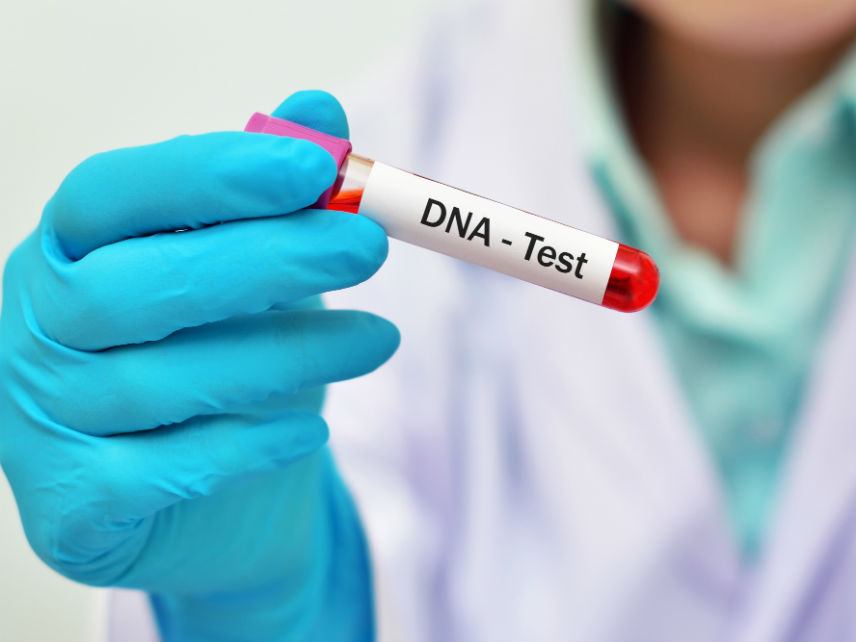California Will Keep Your DNA on File Even if You Haven't Been Convicted of a Crime
The Electronic Frontier Foundation, the Equal Justice Society, and others are challenging the practice in court.

Of the hundreds of thousands of felony arrests made in California last year, only 66 percent ended in a felony conviction. But even when the accused aren't convicted, the state still keeps their DNA on file.
Now the Equal Justice Society (EJS), the Center for Genetics and Society (CGS), and CGS consultant Pete Shanks are suing to stop the retention of DNA for those who have not been convicted of a crime. The plaintiffs, who are being represented by the Electronic Frontier Foundation (EFF), argue that the policy violates the Fourth Amendment's protection against unreasonable searches and seizures.
When the state seizes and analyzes DNA, the information is uploaded to a national database called the Combined DNA Index System, or CODIS. There it remains indefinitely, unless someone's record is expunged. (According to the EFF, of the 750,000 profiles eligible for expungement in the last decade, only 1,510 requests have been made and 1,282 granted.) Those affected by this practice include those arrested without probable cause and those arrested and released without charges.
California keeps the DNA even of people arrested for low-level victimless offenses, which can include drug use. Maryland, by contrast, only retains the DNA of people arrested for serious felonies.
Lisa Holder, interim legal director at the EJS, argues that California's policy disproportionately affects black men. In the district where the case was filed, she tells Reason, "African American adults are 7.1 times as likely to be arrested and 11 times as likely to be booked into the county jail." She rejects the common argument that this simply means blacks commit more crimes, pointing to a study commissioned by the California State Assembly that showed "an astonishing 92 percent of the black men arrested by police on drug charges were subsequently released for lack of evidence or inadmissible evidence." For white people, the figure was 64 percent; for Latinos, 81 percent.
Meanwhile, the EFF notes that DNA identification is not as foolproof as many believe, since sample mix-ups and subjective misreadings have implicated innocent people in the past.
Michael Risher, an attorney on the case, tells Reason that the government has 30 days to respond to the legal complaint. The government can also choose to file a demurrer, which would effectively dismiss the case.


Show Comments (25)